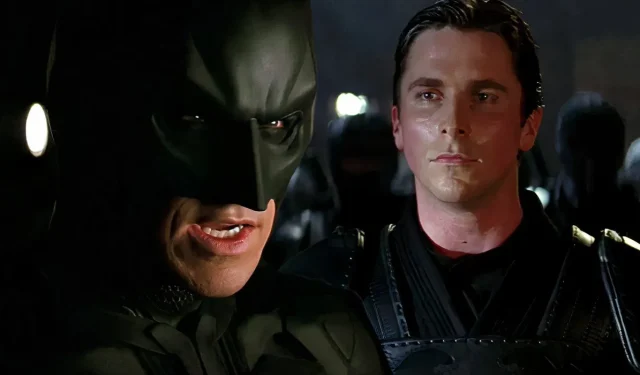
Christopher Nolan’s The Dark Knight trilogy not only revolutionized the portrayal of Batman but also reshaped the superhero genre, setting a high standard for storytelling in this domain. Even years after the trilogy concluded, discussions continue to explore its impact and the potential for upcoming DC projects to replicate its success. Nolan’s unique approach, particularly his decision to delve into Batman’s origin story, offers valuable insights into why the DC Universe might benefit from avoiding the same narrative path.
Nolan’s Exploration of Batman’s Origin: An “Interesting Gap”
In a revealing interview with Film Comment, Christopher Nolan shared his motivations behind creating Batman Begins and the subsequent trilogy. He noted that at the time, Warner Bros. struggled to effectively utilize the beloved character, stating: “I got excited about the idea of filling in this interesting gap—no one had ever told the origin story of Batman.” This lack of focus on Batman’s backstory presented a unique opportunity for Nolan to explore the complexities of Bruce Wayne’s transformation into the Dark Knight.
Nolan’s perspective is justified, as previous cinematic adaptations had only skimmed the surface of Batman’s origin. Despite earlier films, including the 1989-1997 series that featured notable villains like the Joker, they did not fully delve into the emotional and psychological journey of Bruce Wayne. Rather, they tended to highlight his identity as a superhero superficially, with little emphasis on his motivations and struggles.
The Significance of Batman’s Origin
Understanding Bruce Wayne’s evolution is critical to appreciating what makes him a compelling character. His quest for justice stems from profound personal trauma, and the narrative arc of The Dark Knight trilogy invites audiences to engage with these deeper conversations about morality, vengeance, and redemption. While previous adaptations touched on his parents’ tragic deaths, Nolan’s trilogy examined Bruce’s full emotional journey from a grieving child to a determined vigilante, establishing a context that resonated with viewers.
The Changing Landscape of Superhero Origins Since Batman Begins
The Current State of the Superhero Genre
Since Batman Begins, released in 2005, the superhero genre has evolved dramatically. Nolan’s trilogy helped popularize character-driven narratives within the DC universe, making the journey of becoming a hero a familiar concept for modern audiences. However, as the Marvel Cinematic Universe (MCU) and DC Extended Universe (DCEU) have gained momentum, audiences have grown accustomed to the superhero origin story format, leading to a potential desensitization towards new iterations.
In this current landscape, the trope of presenting an origin story may no longer captivate audiences as it once did. Today’s viewers have seen a plethora of superhero stories that follow a similar formula, causing the initial narrative fireworks associated with these tales to diminish.
Embracing New Narratives in the DC Universe
The DC Universe’s Strategic Shift Away from Origin Stories
The recent direction of the DC Universe hints at a forthcoming exploration of lesser-known characters and untold narratives. Projects like Swamp Thing and The Authority are leading the charge, opening the door to complex storytelling that diverges from traditional narratives. Furthermore, the anticipated film The Brave And The Bold plans to introduce Damian Wayne—Bruce Wayne’s biological son—an innovative angle that centers on an older Batman grappling with parenthood and legacy.
This fresh approach not only resonates with audiences familiar with Bruce Wayne’s story but also creates opportunities to explore new themes and relationships. By shifting focus from Batman’s origins to lesser-explored aspects of his character and the broader universe, the DCU can effectively reinvigorate the narrative landscape while paying homage to its rich history. This strategy mirrors Nolan’s initial groundbreaking vision, indicating that the DC Universe can successfully embark on thrilling, unexplored territory.




Leave a Reply